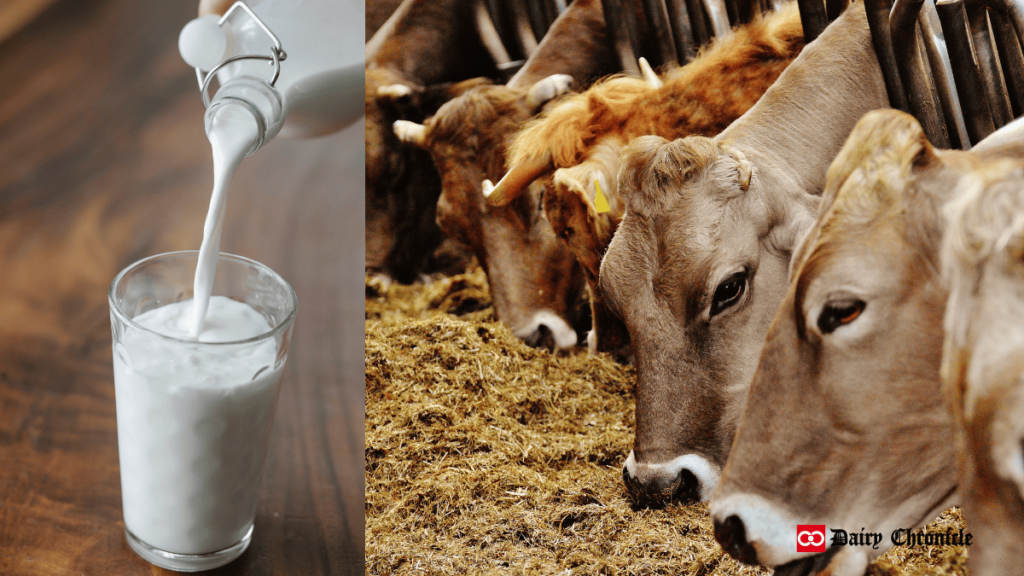India, the world’s largest milk producer, faces challenges in dairy farming, including low productivity and high methane emissions. However, with government initiatives, innovative projects, and sustainable practices like biogas production and precision feeding, India aims to lead in sustainable dairy farming. These efforts could transform the sector, improve productivity, and mitigate environmental impacts.
India’s dairy industry, bolstered by decades of public-sector investment and international partnerships, is the largest in the world. In 1965, the National Dairy Development Board (NDDB) was established to transform dairying into an instrument for the development of India’s rural sector.
Farmer cooperatives sprang up around the country, collecting and processing milk and other dairy products for sale in villages and cities. This movement, known as the “White Revolution,” significantly increased the incomes of 80 million Indian farmers and expanded access to essential nutrients like protein, minerals, and vitamins.
Challenges in India’s Dairy Sector
Despite its status as the world’s leading milk producer, India’s dairy sector faces significant challenges:
- Low Productivity: In 2014, India had 50 million dairy cows and 40 million water buffalo, producing a total of 140 million tons of milk. Dairy cattle produced an average of only 14,000 hectograms of milk per animal, while buffalo produced 19,000 hectograms per animal. In contrast, the U.S. had just 9.2 million dairy cows but produced more than 93 million tons of milk, averaging 101,000 hectograms per animal.
- Methane Emissions: The FAO’s review highlighted that South Asia, including India, is responsible for 23% of global methane emissions from dairy production. Poor feed quality on small-scale farms leads to high methane production.
Moving Towards Sustainable Milk Production
Sustainable dairy farming in India is centered on improving practices and resource management to enhance productivity while reducing environmental impact. Here’s a detailed look at the key components:
Efficient Resource Use
- Prudent Management: Effective use of resources is crucial to prevent over-exploitation and ensure long-term sustainability. This involves optimizing the use of land, water, and feed resources to meet the needs of dairy production without depleting environmental assets.
- Resource Conservation: Implementing practices that conserve water and soil, such as rainwater harvesting and soil health management, helps maintain the balance of natural resources.
Improving Farm Practices
- Cattle Health:
- Veterinary Care: Regular health check-ups and vaccinations are essential to prevent diseases and maintain the overall well-being of the cattle. Preventive healthcare practices can reduce the incidence of illness and improve milk production.
- Disease Management: Effective disease management involves monitoring herd health, prompt treatment of sick animals, and biosecurity measures to prevent disease outbreaks.
- Farm Hygiene:
- Clean Milking Conditions: Ensuring a clean and hygienic environment during milking helps prevent contamination and ensures the safety of milk products. This includes regular cleaning of milking equipment and facilities.
- Waste Management: Proper management of farm waste, including manure and used bedding, reduces environmental pollution and can be used for biogas production or composting.
- Feed Management:
- High-Quality Feed: Providing balanced and nutritious feed is essential for maintaining the health and productivity of dairy cattle. High-quality feed improves digestion, enhances milk yield, and reduces methane emissions.
- Feed and Water Quality: Ensuring that feed is free from contaminants and that clean, fresh water is available at all times supports the optimal health and productivity of dairy animals.
Government Initiatives
- Breed Selection:
- Appropriate Bovine Breeds: The selection of high-yielding and disease-resistant bovine breeds helps improve milk productivity and overall herd performance. Breeding programs focus on enhancing genetic traits that contribute to higher milk yields and better adaptability.
- Waste Management Projects:
- Biogas Production: Programs such as the Godhan Nyay Yojana and Gobardhan Project encourage the use of cow dung for biogas production. This process involves collecting cow dung, processing it in biogas plants, and generating renewable energy. The use of biogas reduces greenhouse gas emissions and provides an additional income stream for farmers.
- Green Energy: By converting waste into energy, these projects support sustainable energy solutions and promote organic farming practices. The generated biogas can be used for cooking, heating, or electricity generation, contributing to a reduction in reliance on fossil fuels.
Innovative Projects and Green Energy
India is pioneering several initiatives to promote sustainability:
- Godhan Nyay Yojana: In Chhattisgarh, this program purchases cow dung from farmers, processes it in biogas plants, and generates electricity. This project provides additional income for farmers and supports organic farming.
- Gobardhan Project: In Indore, cow dung is used to produce methane gas for power generation, benefiting local farmers economically and supporting sustainable energy solutions.
Biogas and Carbon Credits
Biogas production offers multiple benefits:
- Waste-to-Energy Conversion: Transforming cow dung into biogas to reduce greenhouse gas emissions and create renewable energy.
- Carbon Credits: Funding biogas projects through carbon credits provides an economic incentive for farmers and accelerates the transition to green practices. By leveraging carbon markets, the dairy industry can promote sustainability and reduce environmental impact.
Future Directions
To enhance sustainability in India’s dairy sector:
- Precision Feeding Technology:
- Tailoring Nutrition: Optimising feed based on the specific nutritional needs of each cow to improve health and productivity.
- Reducing Waste: Minimising feed waste and methane emissions through precise feeding practices.
- Role of Companies: Firms like eFeed support dairy farmers by providing precision nutrition solutions, promoting sustainable practices, and helping unlock carbon credits for additional benefits.
India’s dairy sector has the potential to lead the world in sustainable dairy production by improving productivity, reducing methane emissions, and adopting sustainable practices. With continued investment and innovation, India can achieve a Green Revolution in dairy farming, ensuring food security, reducing poverty, and mitigating climate impacts.



